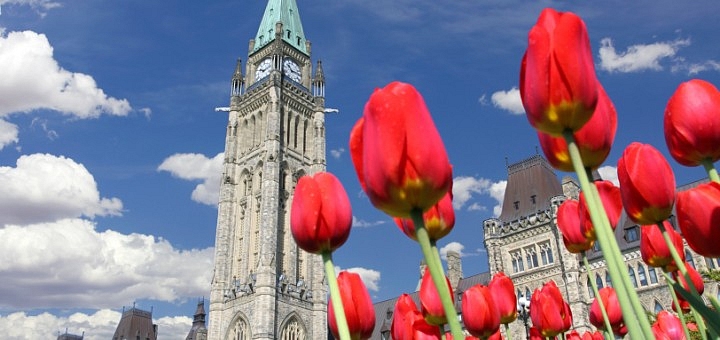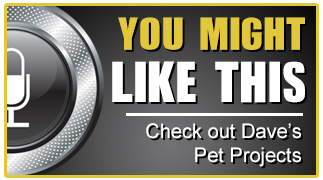Along with “How did this happen?”, the other question people have been asking me since Donald Trump’s election last Tuesday is, “Where does this leave Canada?”
The election of Donald Trump strikes at the core of our own values — the very heart of who we as Canadians collectively believe ourselves to be. His campaign promises — and threats — blatantly oppose our social values and threaten our economic well-being. And his behaviour marks him as opportunistic, unrestrained by the bonds of basic human decency, unpredictable and therefore dangerous.
But worse, this is not your common garden variety tin pot dictator with delusions of grandeur who seized power in a coup d’etat. This is a man who was handed power by the roughly 60 million Americans who cast their votes for Trump for president. Most of them are white, relatively well-to-do, suburb- and rural-dwellers who don’t personally know many blacks, Latinos, Muslims, gays, lesbians, or trans people, but who see that there’s a bunch of them living in the city. They don’t want to have anything to do with these “others”, whom they think have been getting far too much “special treatment” by the Obama Administration — at their expense. Trump gave their grievances legitimacy and brought out the very worst in America.
How should we respond?
A lot of people are going to tell you that our options are limited: that the US is our biggest trading partner (by far), that an open border is vital to our economic interests, that Canada must appease Donald Trump, and that we’ll all have to go along to get along. They will tell you that Canada had better stand for the same things Trump’s America stands for because we’re too small and insignificant to do any differently.
Well, that’s one way of looking at it.
Here’s another: it’s time for Canada and Canadians to be nimble, astute, resilient, and adaptive. And committed.
After two years of recession in Alberta and eight years of a long, slow, bumpy return from the 2008 Great Recession in much of the rest of Canada, we all long for some stability and predictability, but guess what? That’s in short supply around the world. In the year to come, the world will have to deal with Brexit, plus a lot of populist anger of the Brexit-and-Trump variety in a number of other European countries that are due for elections (which could lead to more exits from the EU), plus a sagging Chinese economy. Add to that, the usual basket of tragedies, terror and troubles in hot spots around the world. Add to that, Vladimir Putin. Add to that, Donald Trump, and “stability” and “predictability” are concepts that no longer compute.
In such a world, being nimble and able to quickly adapt to critical incidents and changing realities will serve us far better than hitching our wagon to a lone, injured, spooked horse being ridden by an outlaw.
That said, reality intrudes somewhat. The US is our biggest trading partner and our heavily armed next door neighbour who seems to have been drinking, and it’s not like we can move (Nor would we want to). So to an extent, we need to play a little suck-up-and-win, understanding that there is no guarantee that doing so will actually get us a win.
Trump says he intends to renegotiate or tear up NAFTA? Prime Minister Trudeau was right to immediately announce that we’re open to talking about that. Since Trump’s intended NAFTA target in any event is “job-stealing” Mexico, it’s a better strategy to try and get out in front of things and look co-operative than not.
Of course Ottawa must continue doing everything in its power to work on relations with Washington. The good news is that those relations are so multilayered that they mostly work pretty well even if the president and prime minister of the day can’t stand each other.
On that note, Trudeau should make an effort to build a personal relationship with Trump. It’s not going reach the level of genuine mutual respect Trudeau and Obama had, and it may not succeed at all (think Harper’s disdain for Obama, turn that around, and multiply it), but better he should try.
Our leaders at every level of government, in business, and in labour need to reach out to their opposite numbers in the US, counter the protectionist arguments as best we can and make the case that free trade and open borders with Canada create good jobs in the US rather than steal them away.
We should increase our defence spending. It calls Trump’s bluff by doing what he says he wants — Trump isn’t altogether wrong about other NATO members not paying their fair share of the alliance’s bills. Even though I think he’s using that as an excuse to pull back and weaken NATO at Putin’s behest, this could be just a large-scale version of Trump not paying his contractors. In any event, if Trump’s America becomes more isolationist it will be in our national interest to have a more robust military.
There are deep divisions in the United States. I’m not even sure the country can hold together this time, but even if its does, there is every reason to believe that the US government is going to have its hands full for the next four years dealing with dissent and turmoil at home.
There are opportunities for Canada to take strategic advantage of the chaos. We can — and must — reach out to and deepen our ties with the rest of the world. This means the European Union (with whom we’ve just signed a free trade agreement), whether in its current form, or, if it breaks apart, with its former member nations who will need new friends and trading partners. It means Britain, which already has one foot out the EU door. Also Japan, China, Australia and New Zealand. And obviously Mexico. And Chile, Colombia, Costa Rica and other countries in Central and South America and the Caribbean.
Some of these countries are practically soulmates of ours. But for the distance and its alarming array of highly venomous creatures, Australia might as well be Canada-that-drives-on-the-left. Others are countries that share fewer of our values and some, like China, are countries we ought not to fully trust, but with whom we already trade, with whom we can trade more, and with whom we can work to our mutual benefit and sometimes, the planet’s. As Trump makes the United States increasingly protectionist and isolationist, America will be turning its back on all of those countries — which is an opening for us.
I’ll remind you of what I wrote earlier, that the next few years promise even more instability and unpredictability in the world, and there is no one nation with which we can replace the United States — except for our own. I hope it doesn’t happen this way, but we could end up, for a time, one of a very few moderately progressive nations with a functioning democracy, personal liberty, and a diverse society that works. In short, Canada could take on the appearance and the role of the Exceptionalist. Combine that with a renewed reputation for being an honest broker, and we could emerge from the next four years in a stronger global position while Trump is busy trying to keep California from seceding.
It’s wise to make as many friends as you can when your next door neighbour’s causing trouble.







Leave a Reply